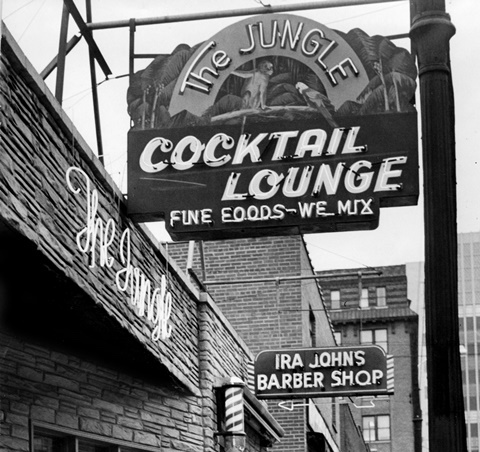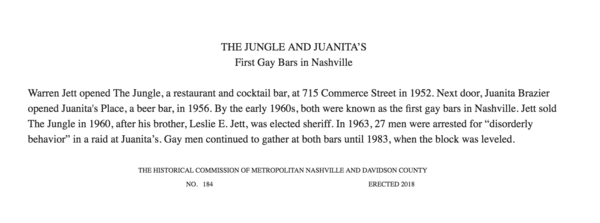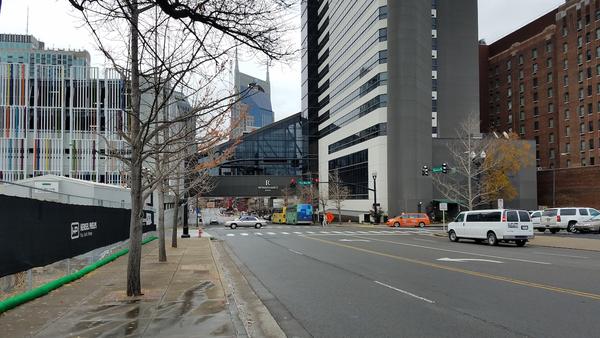
Nearly 60 years ago, two bars on Commerce Street developed a reputation for being discreet places where gay men in Nashville could mingle.
They were just steps from Ryman Auditorium and offices of the Southern Baptist Convention. But despite the well-entrenched taboo against same-sex relationships, bonds were formed there.
Later this week, the Metro Historical Commission will commemorate that history with a marker, the city’s second on an LGBT theme. The simple message nods to the clandestine lengths that, not so long ago, gay men were forced to go to meet — and the risks they endured by doing so.
“There are younger gay people out there that have no sense of this history,” says Nashville writer John Bridges. “They really have no sense of what it was like to just go find a place in the middle of the night for you to go to, and it was the only place to go.”
Bridges has led the push to recognize what were very likely the city’s first true “gay bars.” Long before businesses flew rainbow flags, long before gay pride parades, long before Stonewall, gay men in Nashville relied on word-of-mouth to find out where they could go with little chance of being hassled.
They found that place in the Jungle, a bar on Commerce, and its sister establishment, Juanita’s Place. The sign hanging over the front door read “We Mix.” Most people in Nashville would’ve read that as a reference to mixed drinks.
But it was also a de facto motto.
“They were sort of blending places for everybody,” says Bridges. “People would come there, and they’d have drinks, they’d make friends. I made my best friends in a gay bar.”
The Jungle and Juanita’s opened in the 1950s, in a strip notorious for what Bridges describes as “wildness.” Bridges’ research has turned up countless stories of shootings and bar fights on Commerce Street.
The violence sometimes spread inside. And there were raids. In 1963, 27 men were arrested at Juanita’s for “disorderly conduct” — a common police euphemism at the time for same-sex activity.
Still, by day, straight men were just as likely as gay to wander into the Jungle or Juanita’s. Bridges remembers the Jungle as a popular lunch spot for government employees.
“I don’t think they had any sense of it, because of course they existed in the daytime, and then it changed at night,” says Bridges. “I don’t know how they figured out what time it was going to change, but they figured it out.”

The Jungle and Juanita’s closed in the early 1980s. City planners had decided to widen Commerce Street to accommodate the high-rise Renaissance Hotel and the new Nashville Convention center.
By then, Nashville had several, not-secret, gay bars scattered around the city, ending the Jungle and Juanita’s central role. Memories of the bars have only faded ever since.
“And I think it’s important to have a marker that says, ‘This went on there.’ ” says Bridges. “And it’s important for the gay community to know that it went on, too.”



